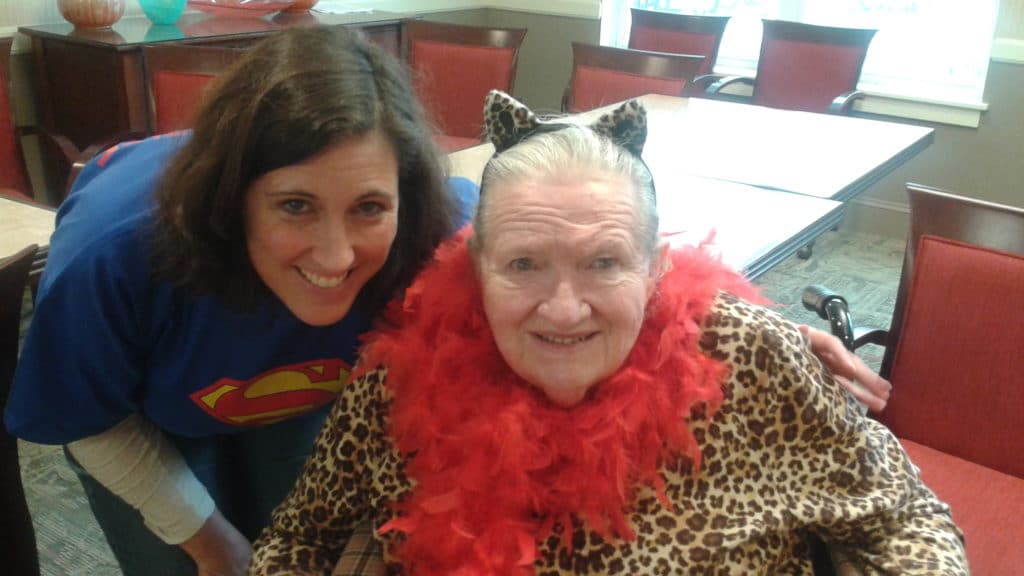Giving a Hand to Our Helping Hands!

AFTD Volunteer: Amy Almeida
AFTD volunteer Amy Almeida and her family used AFTD’s resources for care partners throughout her mom’s FTD journey. She was inspired to become an AFTD volunteer for two reasons. First, she wanted to give back after AFTD helped her family provide her mom with the highest-possible quality of life. She was also inspired to act after getting to know fellow AFTD volunteer and AFTD-affiliated support group facilitator Katie Brandt, who has turned her own family’s FTD journey into her life’s work. Amy’s interactions with Katie ignited her drive to do the most she can for the AFTD community.
Amy has volunteered for AFTD for more than four years, as both an affiliated support group facilitator and a community awareness volunteer. AFTD is grateful for Amy’s dedicated service to our community and organization.
What has been the most cherished memory you’ve made while volunteering for AFTD?
I was approached to become a support group facilitator, and despite having some doubts about my suitability for such a role, I took it on and have been facilitating a group for four and a half years. I cherish the feedback I receive after I’ve helped caregivers through a rough patch. It is extremely rewarding to be able to use my experiences as an FTD caregiver to help others traveling a similar journey.
As a community awareness volunteer, why do you participate in table settings?
I enjoy table settings because you often meet people who have never heard about FTD before. It’s incredibly rewarding to educate people about this devastating disease. Being able to provide resources to health professionals who may have never seen a case of FTD gives me hope that families will not have to struggle to be correctly diagnosed in the future.
How do you see your volunteer efforts contributing to AFTD and its mission?
AFTD’s motto is “Find Help – Share Hope.” I see my volunteer efforts as embodying this phrase. Table settings let me point persons diagnosed, their families and health professionals to vital AFTD resources, enabling them to find help. Facilitating a support group enables me to share hope with other FTD caregivers simply by validating their experiences and sharing my own.
What would you tell someone considering volunteering with AFTD?
It’s a good way to give back to an organization that has helped so many people affected by FTD. There are opportunities to do as much or as little as you’d like. Volunteering with AFTD doesn’t have to be a huge time commitment.
By Category
Our Newsletters
Stay Informed
Sign up now and stay on top of the latest with our newsletter, event alerts, and more…
